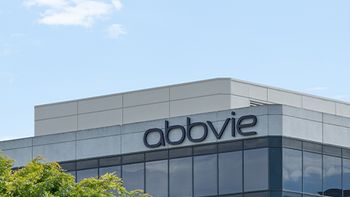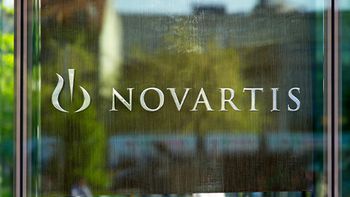
- Pharmaceutical Commerce - July/August 2013
AmerisourceBergen's Steve Collis: 'This is not about short-term results'
Following its pathbreaking alliance with Walgreens/Alliance Boots, AmerisourceBergen is busy executing its future plans
Many ripples were stirred in the pharmaceutical-distribution pond when AmerisourceBergen and Walgreens announced a radically different supplier-customer relationship in March. For the moment, ABC is looking at a rapid, $25-billion boost in the volume of products it distributes by winning Walgreens business away from Cardinal Health. The contract is for 10 years—considerably longer than the usual three- or five-year agreements between major pharmacy chains and wholesalers. But behind the Walgreens contract stands Alliance Boots, which Walgreens had taken a 45% equity relationship in previously. Alliance Boots is a major wholesaler—and retail pharmacy—in Europe and parts of the rest of the world. And on top of that, Walgreens and Alliance Boots together are taking equity positions in ABC that could top out at 30% ownership, tightly binding three major players in pharmaceutical distribution and dispensing. In mid-May, ABC announced that it had received regulatory clearance for the equity arrangements.
Wall Street has mostly been positive about the move; ABC is currently rated a “buy” by major investment houses (with its current stock price of the low $50s projected to rise to the low $60s); and Walgreens stock was up 9% from March to early June. The contract switchover from Cardinal Health to ABC will occur on Sept. 1—making for a busy summer for ABC president and CEO, Steve Collis.
“We offer three basic strengths above and beyond our support of community pharmacy: 1) our relations with manufacturers and their commercialization needs; 2) our relations with payers; and 3) our unique business models that differentiates our network from other wholesalers,” he tells Pharmaceutical Commerce. The latter refers, mostly, to AmerisourceBergen Specialty Group, the division of ABC that Collis headed before taking over the reins of the entire company in 2011.
But he also notes that, while the near term is looking good, “This [alliance] is not about short term results. The healthcare system is under stress—worldwide—and we think we have a role to play.” Indeed, one gets a spinning-the-world-and-picking-a-spot feeling in listening to Collis talk about all the ramifications of the partnership. ABC/WAG/A-B will manage 15% of the world’s generic pharmaceutical supply; WAG/A-B had set up a purchasing joint venture, Walgreens Boots Alliance Development GmbH, through which global generics purchases will be made and in which ABC will be participating. But then Collis notes the value to local Walgreens stores (which were 80% self-distributed prior to the alliance) will now see routine daily deliveries and perhaps twice-a-day in some cases.
Yet another element is ABC’s 2012 acquisition of World Courier, a global express-delivery company specializing in clinical trial materials. “That puts us in the position of assisting manufacturers in drug discovery and development,” Collis says. Over time, ABC has been refining and strengthening what it calls its “manufacturer services business” of providing reimbursement services, specialty distribution, market data analysis and consulting that ABC offers to manufacturers. Collis sums this up by saying “With our national and now international scope, we will have data-exchange capabilities no one can match.”
Still to be seen is how ABC’s existing base of independent pharmacies will react to this juggernaut. Collis says that the company has simultaneously handled business for large chains and for independents for years, and that “there is no better friend of the independent pharmacy than AmerisourceBergen,” but the enthusiasm for independents remains to be seen.
And as broad as the scope of Collis and his new partners is, there are limits: at the same time that ABC was touting the significance of the global network, it was also divesting itself of its Canadian wholesale business (it retains specialty distribution there), selling the business to Canadian wholesaler, Kohl & Frisch Ltd. ABC was the No. 3 distributor in Canada, and Collis says that the investment needed to build the business, given the other actions the company is taking, could not be justified. Another, somewhat surprising, factor is human resources: “We had some of our best distribution experts tied up in Canada, and we need them here now,” he says.
ABC also divested part of its contract-packaging business, AndersonBrecon, selling it to a US firm, Frazier Healthcare—but that business unit was on the block in late 2012, prior to the spring announcement.
Looking ahead, Collis stresses ABC’s “core competency” in distribution and supply chain management, and the savings it expects to provide to retailers and payers in streamlined distribution. ABC’s main US competitors, Cardinal and McKesson, haven’t been standing still: McKesson is now a major force in specialty distribution, having acquired US Oncology; and Cardinal has invested in wholesale distribution in China, among other new ventures. The Big Three wholesalers have been shaving finer and finer slices of costs out of distribution for over a decade now, and it remains to be seen whether the alliances like ABC/WAG/A-B will change the face of pharma distribution.
Articles in this issue
over 12 years ago
At ASCO meeting, McKesson showcases US Oncology capabilitiesover 12 years ago
Cold Chain GDP & Temperature Management Logistics Global Forumover 12 years ago
GHX and the VHA e-pedigree pilotover 12 years ago
The value of real-world data in drug commercializationover 12 years ago
NABP is on its way to owning the .Pharmacy domain suffix (gTLD)over 12 years ago
Medical Affairs' changing role in market access and reimbursementover 12 years ago
Outsourced facilities management saves precious financial resourcesover 12 years ago
How about a US Chamber of Healthcare Commerce?over 12 years ago
Overcoming operational silos in pharma revenue managementNewsletter
Stay ahead in the life sciences industry with Pharmaceutical Commerce, the latest news, trends, and strategies in drug distribution, commercialization, and market access.




